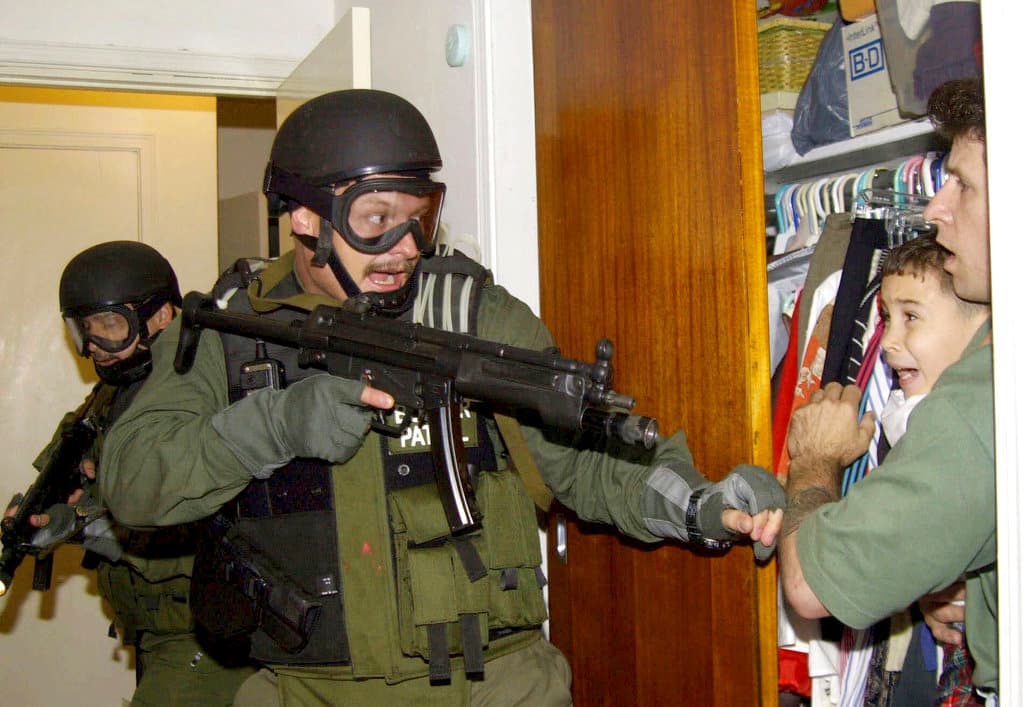Elian Gonzalez Emerges as a Candidate for Cuba’s Communist Legislature
At age 5, after reaching America in a desperate voyage by boat, he was seized at gunpoint by the Clinton administration and sent back to the communist island.

The man once known as “Little Elian,” who as a boy was seized at gunpoint by American authorities after fleeing to America in a rickety boat and sent back to the communist island, is set to become a member of Cuba’s legislature.
It is a heartbreaking development for free Cubans in the United States. They still remember how young Elian Gonzalez was found near Florida’s coast more than 20 years ago. His rescue set off a widely publicized custody battle between Cuba and America.
Deep down, Cuban Americans knew that when young Gonzalez was seized by the Clinton administration and sent back to the prison island, he would be bound to be conscripted as a follower of the Cuban communist president, Fidel Castro.
“Fidel put many things in my hand,” Mr. Gonzalez told CNN in 2017. “Fidel told me if I wanted to be an athlete, he supported that. If I wanted to be a swimmer, he supported that. If I wanted to be an artist, he supported that — and he did.”
The regime sees Mr. Gonzalez as an icon of the Cuban revolutionary struggle against America, the founder of the Miami-based Foundation for Human Rights in Cuba, Yanet Brunet, tells the Sun. “He was placed as a symbol of how evil the United States is.”
At the end of a custody battle between Mr. Gonzalez’s Miami-based family and his Cuban father, the boy was returned to the island. Castro and members of the Communist Party went on to coddle the lad, according him privileges that, Ms. Brunet marks, no other Cuban gets.
“He has been handpicked and preselected for this position because of his status as a revolutionary figurehead,” she adds. “He has been groomed for this position his entire life.”
A member of Cuba Decide, Carmen Algeciras, whose Miami-based organization fights for democracy in Cuba, tells the Sun that Mr. Gonzalez has been at the center of the regime’s propaganda campaign since he returned to Cuba.
“They are using him, once again, to try and gain credibility in the eyes of the international community and give out the image that they are an island full of supporters,” she says.
At 5 years old, Elian Gonzalez was found a couple of miles from the coast of Fort Lauderdale on Thanksgiving day in 1999. His mother had attempted to escape the Cuban regime with him but drowned after their boat sank.
The boy’s relatives welcomed him into their home at Miami. Yet, back in Cuba, his father, Juan, and Castro began a legal battle with America to bring the boy back. The American Supreme Court rejected an appeal to keep Elian Gonzalez in the country.
On April 22, 2000, federal agents, sent by the Clinton administration, stormed his adoptive family’s home, seized the boy at gunpoint, and took him from his weeping family. Videos of Elian Gonzalez’s terrified face flooded news channels around the globe.
When Ms. Brunet first found out that Mr. Gonzalez was set to become a candidate for the upcoming national assembly election, all she could think of was his mother. “I have a little boy,” she says.
“It’s a little emotional for me,” Ms. Brunet says, because the “irony” of this is that his mother gave up her life to get him away from the dictatorship of which he is now part.
The executive director of the Center for a Free Cuba, John Suarez, finds it “lamentable” that Mr. Gonzalez has now become an “instrument” of the dictatorship that drove his mother to risk — and give up — her life for his freedom.
“The Cuban National Assembly is a rubber stamp body that echoes, in unanimity, the edicts of the dictatorship,” Mr. Suarez says. He says that he is “saddened” for Mr. Gonzalez.
Cuba is a one-party state, where the Communist Party is the “superior driving force of the society and the state” that “orients the communal forces” toward constructing a “communist society,” Cuba’s 2019 constitution says. Sham elections occur every five years for uncontested national assembly seats.
The faux-election system is a major hurdle to American recognition of Cuba. Terms of normalization were enacted in 1996 in the Helms-Burton — or “Libertad” — Act, signed into law by President Clinton. The law seeks to ensure a “peaceful transition to a representative democracy and market economy in Cuba.” Section 205 mandates that the government organize free and fair elections, “with the participation of multiple political parties.”
The candidates for the election are nominated by a Communist Party-controlled committee, giving voters only one candidate for each seat. Cuba’s constitution states that all Cuban citizens have the right to be a candidate. Yet, people cannot freely run or be elected.
“What you have are votes in a one-party dictatorship,” Mr. Suarez says. “Candidates are selected by the top brass of the regime,” who “politically segregate” anyone who does not support the electoral choices, he adds.
During the March 26 elections, Cubans will select all of the candidates, some of them, or leave all of the options blank. Yet, they are not given the option to vote against anyone. The candidates who receive more than 50 percent of the valid votes cast are elected.
“The word election is kind of a loaded word for Cubans,” Ms. Brunet says. “In Cuba, there are no free or fair elections.”
Correction: 1996 was the year the Helms-Burton terms of normalization were enacted. The year was misstated in an earlier version.

